Innovation and entrepreneurial activity in the Healthcare Technology sector is leading to rapid advancements and the delivery of major improvements in the quality and efficiency of healthcare delivery.
A list of the latest and most exciting healthcare technology developments and ventures is provided below. To make us aware of new and exciting ventures and technologies, send an email to
[email protected].
Subscribe for FREE to the HealthTimes magazine
Motio HW
A wearable 'smart-watch' medical device is helping to prevent, diagnose and treat sleep apnea, a serious condition which affects up to 6% of the worlds population. Motio HW works by collecting data such as oximetry, heart rate, respiratory rates and actimetry. This data is then processed via an app which creates a users sleep profile and provides information on how to improve sleep.
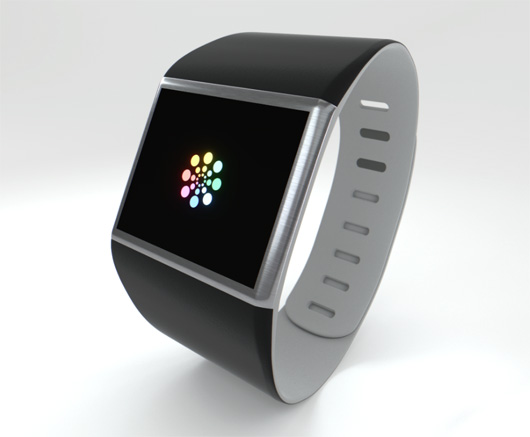 Rapael Smart Glove
Rapael Smart Glove
This new smart glove is a high-tech wearable device making hand rehabilitation as simple as playing games. The glove uses a variety of sensors to guide a patient's rehabilitation for common hand and wrist injuries. It connects to an app where patients can play games customised to their rehabiliatation needs, increasing in difficulty as they progress. Games and simulatulations include throwing darts, chopping and cooking food, card games and more.
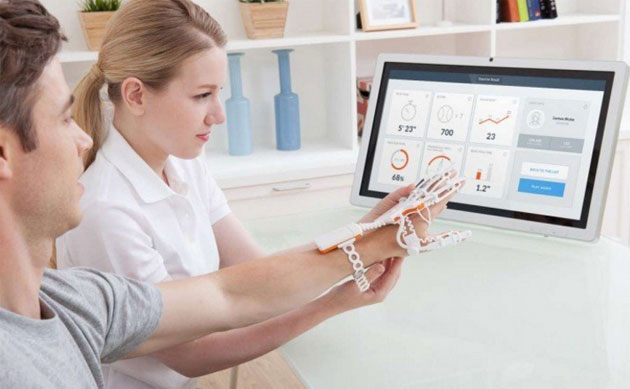 Dot Watch
Dot Watch
A new smartwatch is promoting inclusivity and accessibilty in technology for the visually impaired. The Dot watch uses a tactile disaply of rising and falling dots to spell out words in Braille allowing users to tell time, read GPS directions and even read and respond to text messages.
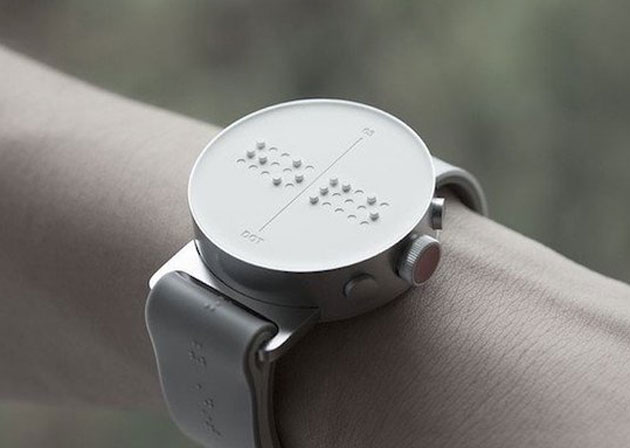 Liquid Biopsy
Liquid Biopsy
New blood tests may be the future for cancer diagnosis and treatment as researchers from the US, China and other countries racing to develop new tests, including a potential general-purpose test for nearly all cancers. While current tests vary widely in both comprehensiveness and method, they are opening the door to less-invasive early detection of cancer. These tests may also allow practitioners to prescribe drugs based on the specific DNA mutation occuring.
 Aipoly
Aipoly
A new app created by an Australian start-up is helping the vision impaired to see the world using artificial intelligence. The app uses an AI algoritm to instantly identify objects disaplyed through your smartphone camera, it then tells the user what the object is. Developers are also working on updates which will enable the app to understand complex scenes and descibe items in relation to one another, such as "This is a dog next to a lamp post".
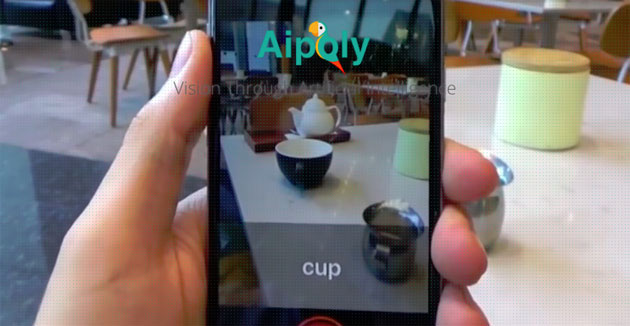 Bloomlife
Bloomlife
A new pregnancy wearable which can help expectant mothers distinguish labor contractions from Braxton-Hicks. The device consists of a patch and a sensor which sticks to your bump and measures uterine activity via electophysiology. As the device is only needed for the last few weeks of pregnancy, Bloomlife leases the trackers instead of selling them, making it an afforable option for expectant mothers who wish to closely monitor their contractions.
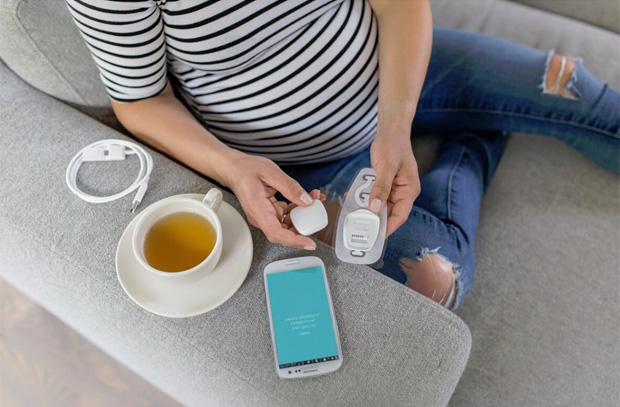 TempTraq
TempTraq
When a small child is unwell, monitoring their temperature can be be stressful for both the child and carer. TempTraq is a new smart patch which can monitor a child's temperature 24/7. It continuously senses and records temperature data which can be monitored by an app, allowing parents to relax and children to sleep undisturbed.
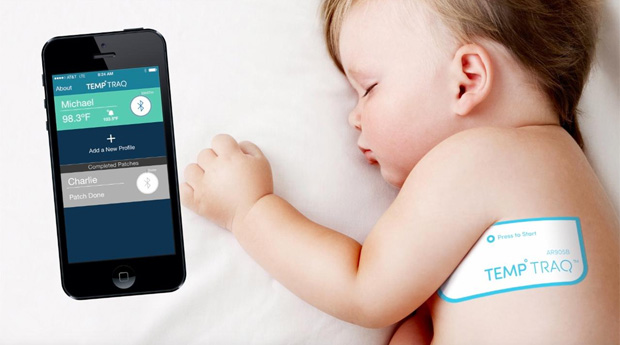 Liftware Level
Liftware Level
Verily has launched a new smart spoon designed to to help people with limited hand and arm mobility, due to conditions such as Parkinsons or Cerebral Palsy, to eat more easily. The spoon contains a motorised counterbalance which works to counteract any unwanted movements and allow the spoon or fork attachment to remain level. The spoon connects the user via a handstrap and can be recharged after use.
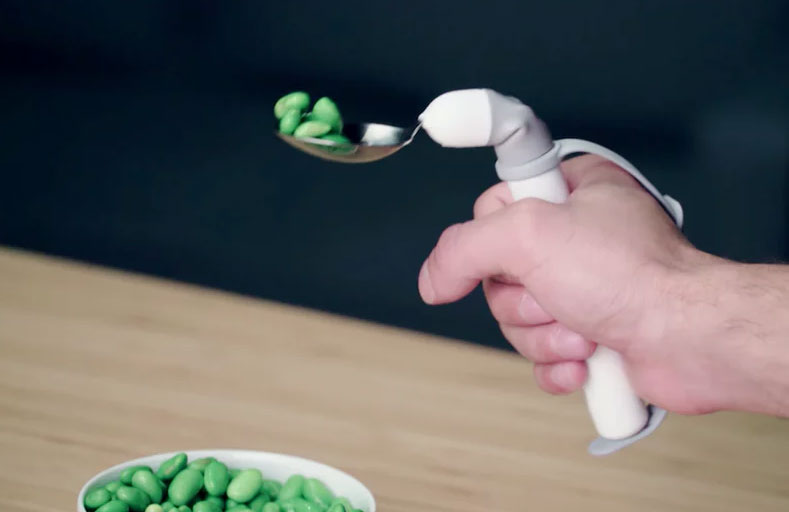 Glowing Tumors
Glowing Tumors
Researchers from Penn Medicine (University of Pennsylvania) have had success using fluorescent contrast agents to enable precious tumor excision during brain cancer surgery. The treatment lluminates brain tumors in real-time during surgery, helping physicians distinguish between healthy and cancerous tissue.
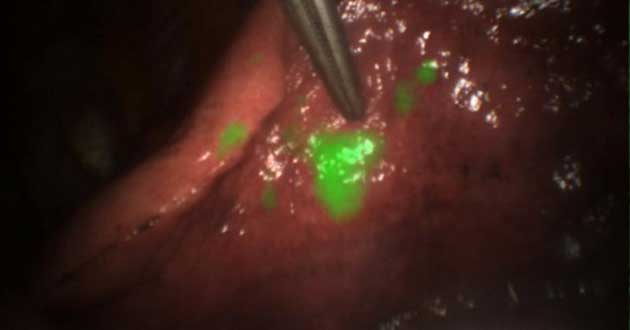 RIBA
RIBA
Deisgned by Japanese company Riken, RIBA is a robotic nursing assistant aimed at reducing lifting injuries in the healthcare setting. RIBA is the first robot designed to lift up and set down patients using human-like arms and a tactile guidance system using high accuracy sensors. RIBA can assist in moving patients to and from beds and wheelchairs.
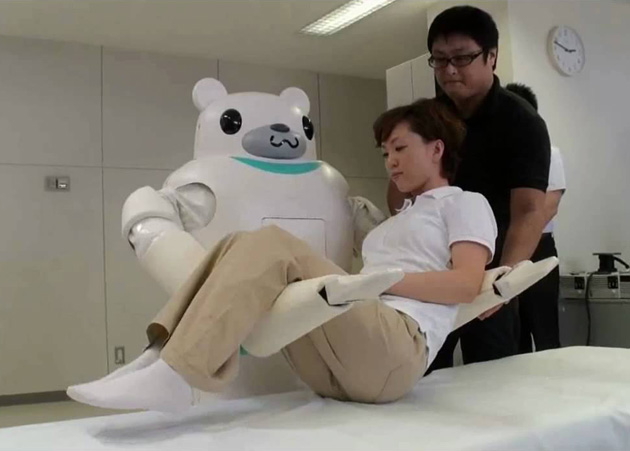 SpaceOAR
SpaceOAR
An injectable bioabsorabable hydrogel designed to protect healthy rectal tissue during radiation treatment for prostate cancer. The gel acts as a spacer, pushing the rectum away from the prostate out of the path of radiation. Once injected, the gel remains in place for 3 months before being absorbed by the body.
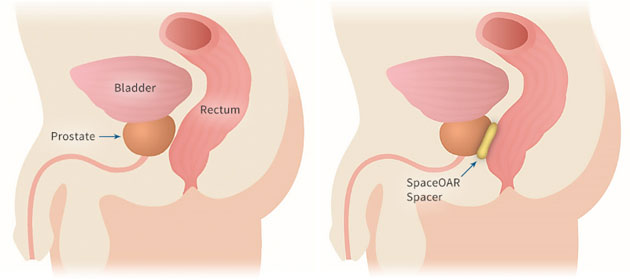 Medical Sieve
Medical Sieve
A new software designed by IBM is aiming to reduce the strain on radiologists (and thereby reduce the number of diagnostic errors) by analyzing medical images as well as patient data to accurately identify anomolies. The software has been shown to be accurate up to 95% of the time compared to the radiologist accuracy rate of approximately 80%. Medical Sieve will be able to free up valuable time for radiologists to focus on the more complex cases and will be a valuable asset in rural and remote areas which do not have regular access to radiologists.
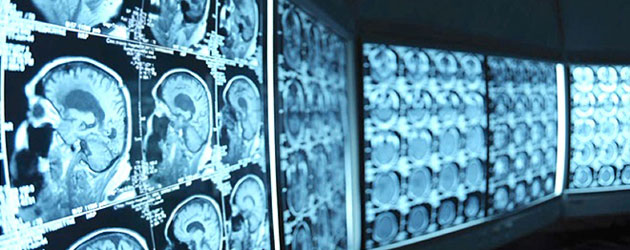 Dynamic Arc
Dynamic Arc
A new techonology is helping to identify the risk of falls in older patients. The Dynamic Arc is a T-shaped device which folds up to fit in a small bag, making it portable and easy to use in a health centre or in a patients home. The patient is hooked to the device and asked to perform a series of tasks such as reaching for a coffee cup. The test, performed by a physio or OT, takes about 8 minutes and can predict even a minor risk of falls.
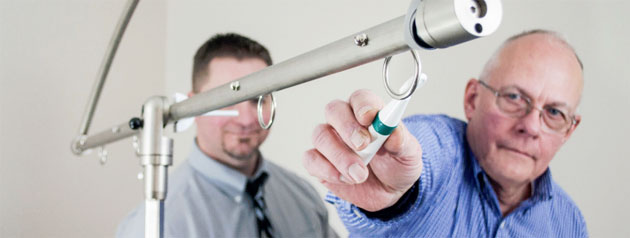 Teixobactin
Teixobactin
The first new antibiotic to be discovered in 30 years, Teixobactin, could be available within 5 years and have been shown to be useful in treating many strains of antibiotic resistant bacteria such as Clostridium difficile. The discovery is being hailed as a potential "paradigm shift' in the war on antibiotic resistance.
 Nanoparticle cancer treatment
Nanoparticle cancer treatment
Researchers from the Niels Bohr Institute and the Faculty of Health Sciences at the University of Copenhagen have developed a cancer treatment method which can target tumors while leaving healthy tissue unaffected. Nanoparticles are injected direcly into the tumor and then laser iridation is performed to destroy the cancer cells from within. Tests conducted on mice have shown significant damage to tumors with results being visible on PET scan within an hour of treatment.
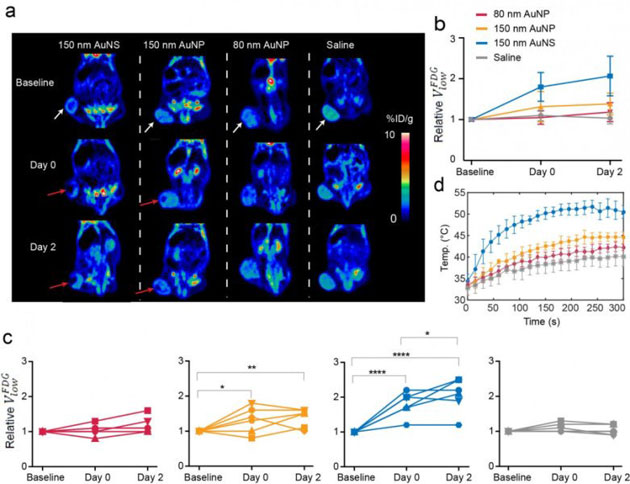 HERMES
HERMES
A NFP organisation is helping to lead major improvements in cochlear implant technology with their new software application, HERMES, which collects data and audiograms from cochlear implant patients allowing healthcare providers and researchers to track progress, share patient information and improve implant care and accessability.
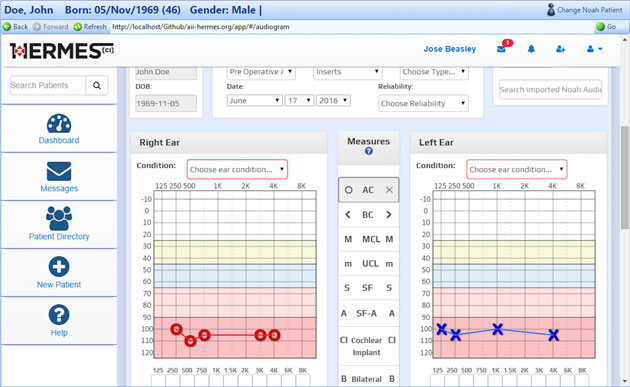 Migrane Implant
Migrane Implant
A new implant from Atomic Technologis could be the first long term treatment option for patients with SPG (sphenopalatine ganglion) related migranes. The implant is inserted into the upper gum line on the affected side and, through the use of a handheld remote, stimulates the nerve bundle to block pain-causing neurotransmitters.
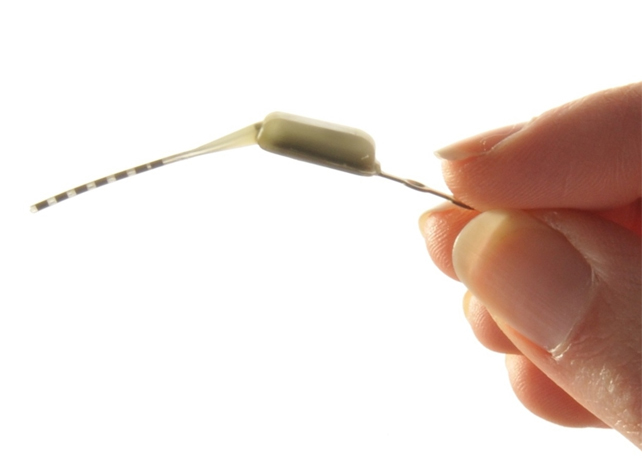 T2MR
T2MR
A new pathogen detector from T2 Biosystems could help cut the sepsis mortality rate in half by aiding in early detection. By measuring changes in the magnetic properties of water moluecules T2MR can detect fungal pathogens in the blood within 5 hours and is more accurate than lab cultures, which can take up to 5 days. The company is also working a system which will detect bacterial strains not covered by broad spectrum antibiotics.
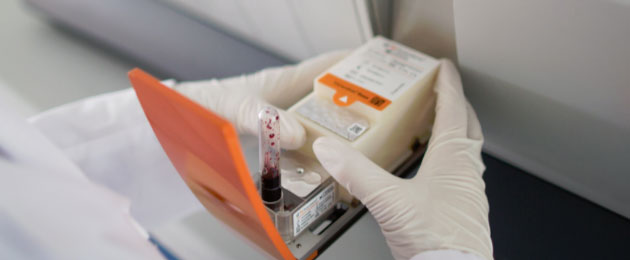 Zenbo
Zenbo
New home robotics systems, like Zenbo from Asus, are revolutioning the way we interact with our homes but they could also have a big impact on health and independce for the elderly or disabled. While not technically a medical device, Zenbo can provide an range of services from helping with the shopping online, reminding users to take medication or about upcoming doctors appointments or contacting emergency services or family in the event of a fall or medical emergency.
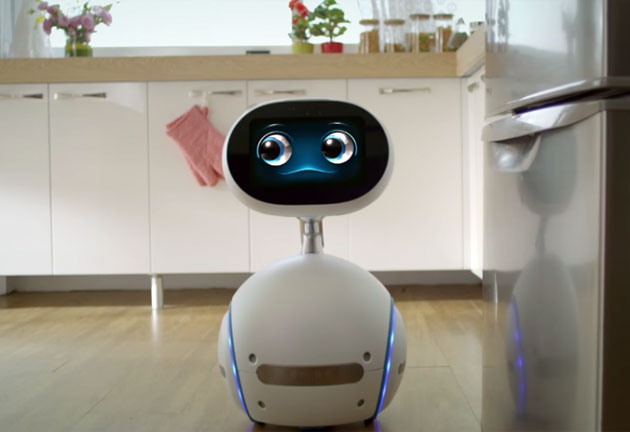 Probuphine
Probuphine
The first ever implant to fight opiod addiction has been approved by the FDA in the US. The matchstick sized implant will deliver a low dose buprenorphine after users have been stabilzed orally for six months and is set to help curb issues of abuse or illicit resale of addiction medication.
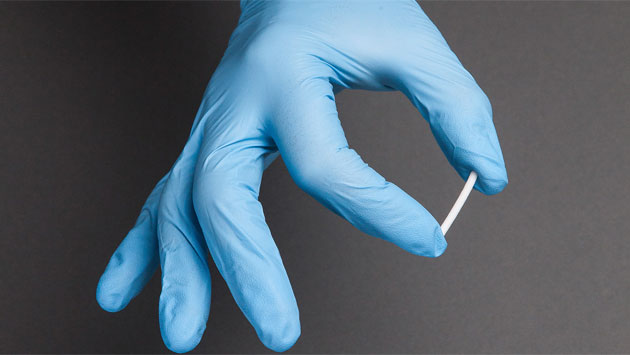 L Card
L Card
Students from MIT and Harvard have won a $100K entrepreneurship competition for their smartphone enabled device, the L Card, which can detect lung cancer with a single breath. The postage stamp sized device works by detecting gases in the breath which are indicative of lung cancer, it then connects to a smartphone app where it will indicate red if cancer markers are present.
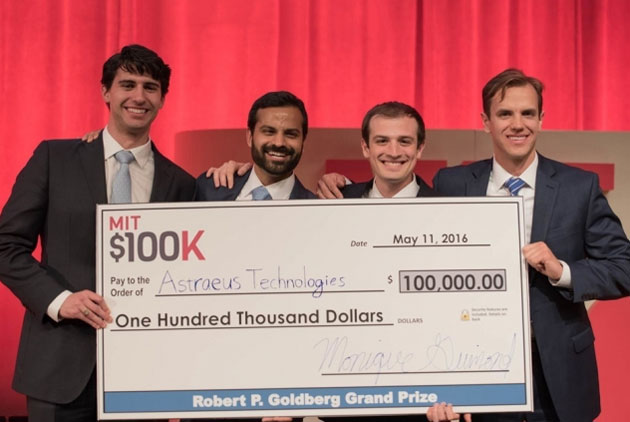 Eversense
Eversense
Tech company Senseonics is poised to introduce their new continuous glocose mintor, Eversense, onto the European market. Eversense consists of an implantable glocuse monitor which connects to a phone app to give the user continuous and up to date blood glucose data. The app also features alarms to notify users when their blood glucose is out of acceptable levels and can provide historical data for practitioners.
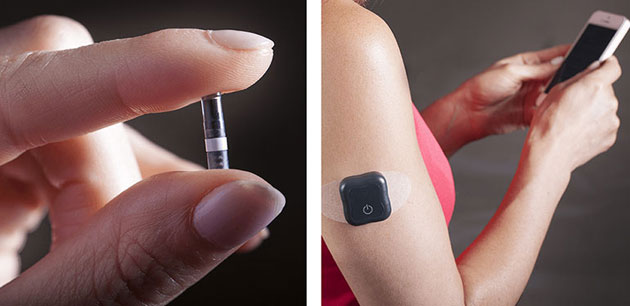 CareKit
CareKit
Apple has now begun the rollout of CareKit, a new mobile software framework which will integrate with IOS health apps to help patients and practitioners manage and treat conditions. CareKit can assist with medication schedules, tracking symptoms/side effects and sending updates or images to your practitioner.
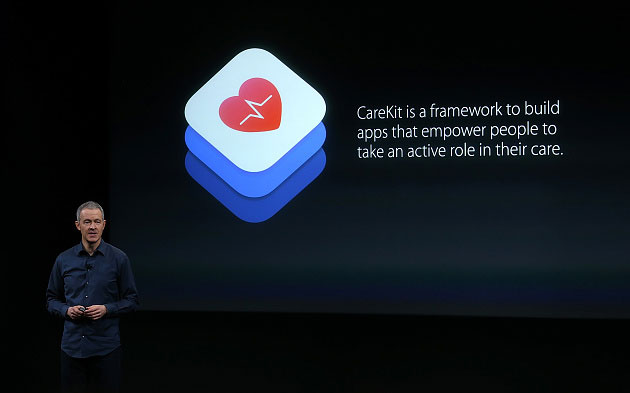 Q-Poc
Q-Poc
A new handheld DNA analyzer with the power to accurately detect everything from cancers to infectious diseases in a matter of minutes, Q-Poc has the ability to revolutionize healthcare, particularly in remote areas and developing countries. The solar powered device
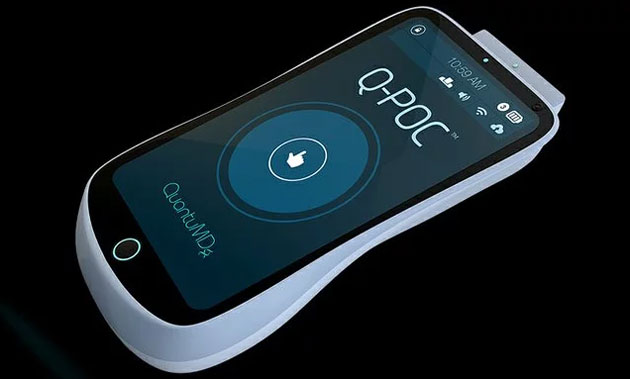 BrainLa
BrainLa
A PhD candidate from Dalhousie University, with the help of his Med Physics supersivors, has created an algorithm which will allow for more precisly targeted radiation therapy in cancer patients, resulting in less damage to surrounding tissues. The alogirthm works by taking into account individual patient data to move the treatment bed dynamically during treatment, keeping healthy tissue out of the path of radiation.
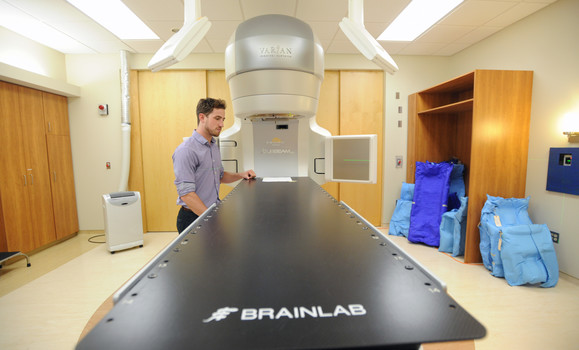 Hit 100
Hit 100
An Aussie tech start-up has created the worlds first meal delivery program aimed at tackling
diabetes. Hit 100 aims to help people living with diabetes better manage their health, via home delivered meals and a unique online 100 point food tracking system.
 In-Quicker
In-Quicker
Emergency departments in the US are helping to ease congestion through the use of digital booking systems such as In-Quicker. When patients check in via the online portlal they are given approximate wait times based on current conditions at the hospital, patients can then wait at home until they are able to be seen.
 Vital Vio
Vital Vio
Using blue-violet LED light fixtures, Vital Vio is creating antibiotic lighting fixtures for hospitals, health facilites and public spaces. Blue-Violet Led lights work by creating toxic oxygen levels for bacteria but are completely safe for humans. Blue-Violet Led has even been effective in erradicating superbugs including MRSA and C. Diff.
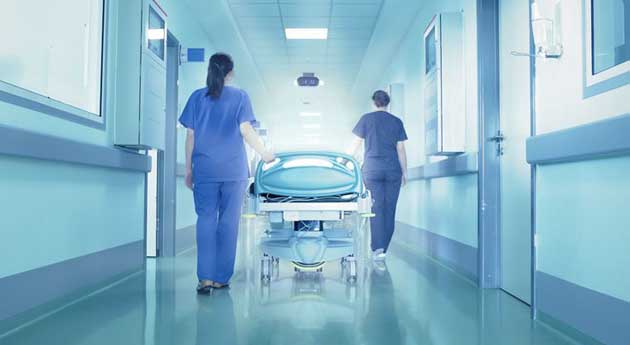 Smart Band-Aids
Smart Band-Aids
New smart bandages may revolutionise the way we treat everything from a scratch to an ulcer. The polymer bandages could be compatible with the human body both internally and externally and include sensors and medication delivery devices to monitor and heal wounds autononously.
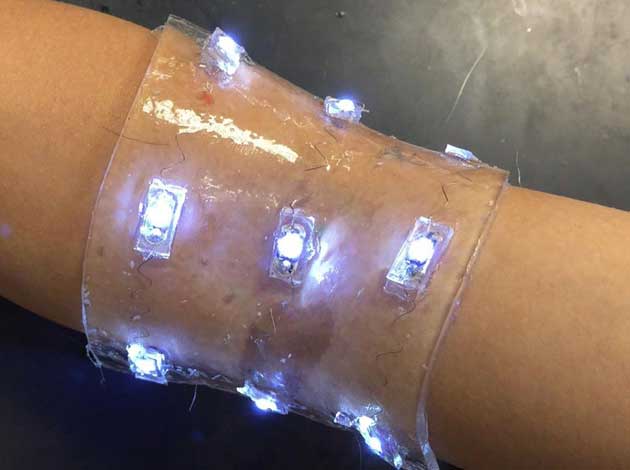 Blue Watch
Blue Watch
A new app developed by the psychology experts at Deakin University allows users to track moods and tackle depressive symptoms before they worsen. Users can work through modules which cover techniques for addressing negative thoughts, breathing exercises to reduce stress and other coping strategies to build resilience. "It is like having a personalised mobile therapist on hand 24/7."
Veta
This new smart case epipen holder could be a life saver for people with severe allergies. The case has a locator feature, including flashing lights and an alarm, to assist users in finding their pen if it has been misplaced. It also can connect to family and carers and notify them if the case has been opened, letting them know immediately if their loved one is having an allergic reaction.
ReSound
ReSound, a manufacturer of smart hearing aids, has created a new decive which allows users to control their hearing aid via an iPhone app. The app allows users to control not only volumne, treble and bass but also create custom settings for when they are outside or in crowded places.
Robot Doctor
Babylon Healthcare, who run a subscription service which allows users to remotely contact a doctor via their online app, are creating an artificial intelligence which can screen patients before advising an appropriate course of action or passing patients on to a human professional.
SPiN
SPiN Thoracic Navigation System is a newly patented 4D respiratory tracking technology which will allow lung specialists to more easily and accurately identify lung cancer in a single procedure.
Ingestible Sensors
Researchers from MIT are designing an ingestible sensor which measures heart rate and breathing from the intestinal tract, allowing doctors to monitor patient vital signs remotely. This techonology could improve the long term treatment of chronic patients, allow doctors to monitor soldies in the field or improve training for athletes.
BEAMOTION
Enhanced echotherapy technology, BEAMOTION, allows for fast, non-invasive ablation of benign breast tumors and thyroid nodules. Treatment of fibroadenomas in clinical settings has shown to be 5 times faster than other available methods.
ADAMM
The lastest development in wearble healthcare technology, ADAMM (Automated Device for Asthma Monitoring and Management) can not only detect when wearers are experiencing and asthma attack but also uses the data gathered to predict and detect future attacks. ADAMM sends the data to an app which reminds users to take their medication and notifies them of possible asthma attacks.
Insulin Angel
Insulin Angel is a new app for diabetics with temperature sensitive medication. Using tempature and proximity tracking is notifies users if their medication starts to exceed recommended temperatures and also ensures they never leave it behind. Insulin Angel can also send alerts to parents or loved ones to ensure urgent notifications are acted upon quickly.
CholeVision
Each year thousands of patients are injured during laparoscopic cholecystectomy procedures and visual aids (such as dyes and contrast agents) greatly increase duration and complexity of the procedure. CholeVision, devloped by the Biodesign team at Hebrew University, is a new device which uses red light to help surgeons easily identify bile ducts during the procedure with just the flip of a switch.
Augmented Microscopy
A team at the University of Arizona have developed a device which will help neurosurgeons differentiate cancerous cells from healthy ones by allowing them to see blood flowing inside the vessels.
Aipoly
Pairing artificial intelligence with your smartphone camera. Aipoly allows users to upload a photo and receive an audio description of the image. The app aims to assist visually impaired users to navigate the world and regain their indepence.
Heart in a Box
The ‘heart in a box’ machine, which has undergone successful initial trials, keeps organs warm and beating when they’re being transported to patients which is expected to significantly increase the number of usable organs for patients in need of a transplant.
Daily Rounds
Daily Round Is a network of 180,000 practicing doctors that use the Daily Rounds app to learn and share clinical cases. This is effectively an online technology that disrupts traditional peer reviewed journals and provides free access and clinical cases for medical practitioners.
Kno2
Kno2 is a technology platform that solves interoperability problems relating to the transfer of medical records and patient files across the healthcare landscape. Currently healthcare providers receive patient files in a range of formats. Kno2 allows healthcare professionals to receive and transform disorganised health records (fax, x-ray, video and paper records) and send these in a smart, secure and compliant format.









































